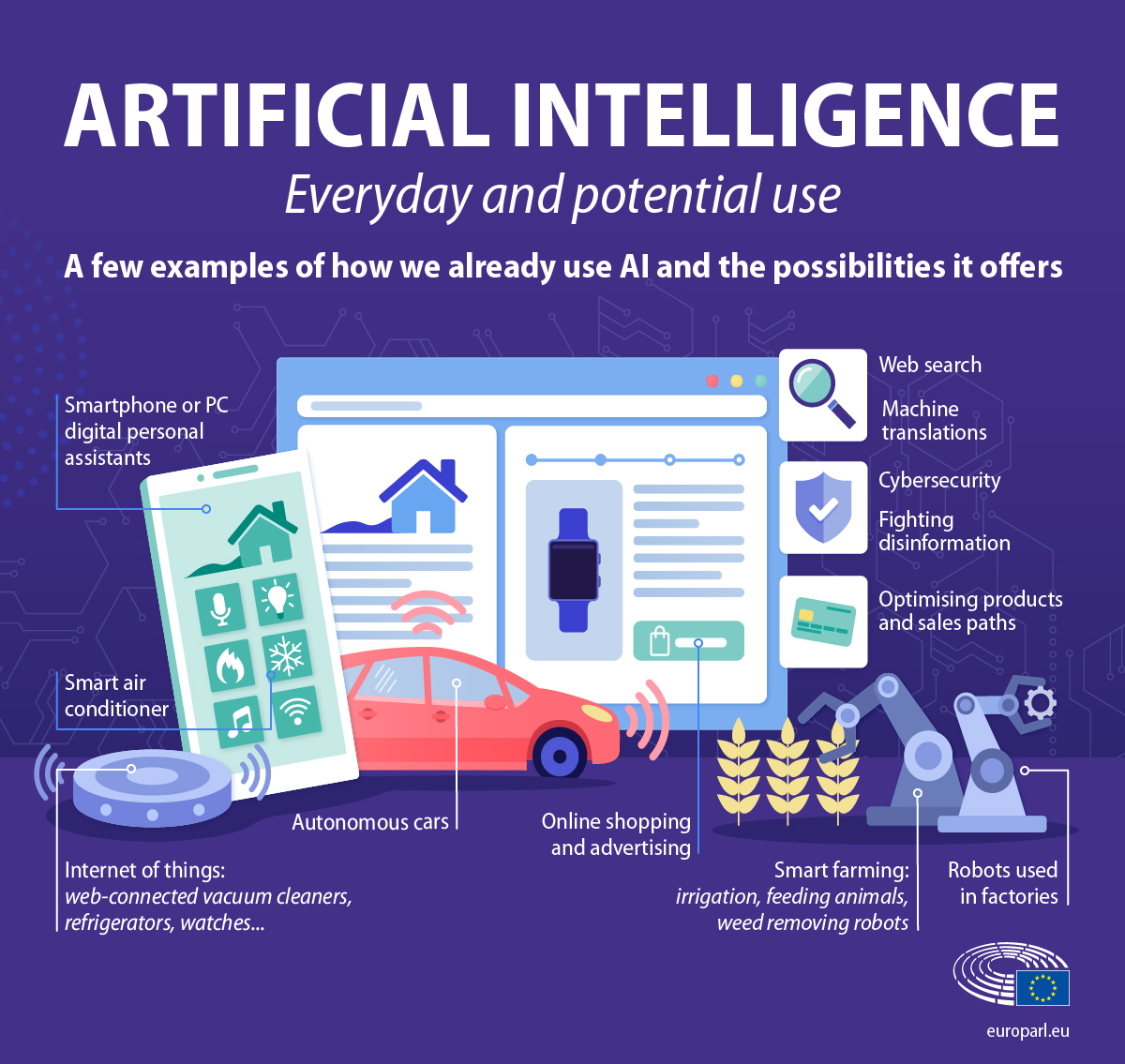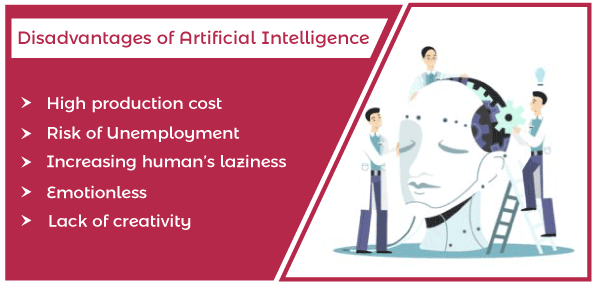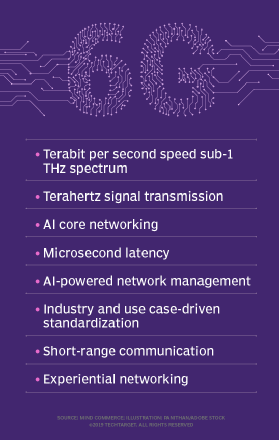How To Use Artificial Intelligence?
Artificial Intelligence (AI) is a rapidly growing field of technology that has the potential to revolutionize how we interact with the world. AI refers to computer systems that can learn and act like humans, using algorithms and data to solve complex problems. AI can be used in a variety of ways, from aiding in automation to analyzing large amounts of data. In this article, we will discuss how to use AI, the different types of AI, and the benefits of incorporating AI into your business. We will also discuss the potential risks associated with using AI, and how to mitigate them. By the end of this article, you should have a better understanding of AI and how to make the most of its potential.
What is Artificial Intelligence?
Artificial Intelligence (AI) is a branch of computer science that deals with the development of systems that can think and act like humans. It is an interdisciplinary field that combines computer science, mathematics, statistics, and psychology to create machines that can think and act autonomously. AI can be used to solve complex problems, automate processes, and make decisions without human intervention. AI is used in many industries such as healthcare, retail, finance, and transportation. It is also used in robotics, natural language processing, image recognition, and machine learning. AI has the potential to revolutionize the way humans interact with technology, and it is being used in more and more applications to improve efficiency and accuracy. AI can be used to automate mundane tasks, analyze data, and create predictive models. AI can also be used to optimize decision-making, improve customer service, and power self-driving cars. AI holds great promise for improving the way people live and work. As AI research continues to advance, it is becoming increasingly important to understand how to use AI in the most effective and efficient way.
The Benefits of Using Artificial Intelligence
Artificial intelligence (AI) has become a major part of our lives, and its potential benefits are endless. From medical diagnosis to autonomous driving, AI is being used to improve efficiency, accuracy, and security. AI’s ability to analyze large amounts of data quickly and accurately can be used to improve customer service, reduce costs, and increase safety. Here are a few of the benefits of using AI to automate certain tasks:
1. Improved accuracy and efficiency. AI can quickly analyze data and identify patterns that would otherwise be impossible for humans to detect. This helps reduce human error and increases accuracy, leading to better decision-making.
2. Cost savings. AI can automate certain tasks that would otherwise require expensive labor, such as customer service inquiries and data entry. This can result in significant savings in operational costs.
3. Improved safety. AI can help reduce accidents by detecting potential risks and taking preventative measures. For example, AI-powered autonomous vehicles can detect obstacles in the road and take evasive action to avoid collisions.
4. Increased customer satisfaction. AI can help businesses create personalized customer experiences by analyzing customer data and providing personalized recommendations. This can help increase customer satisfaction and loyalty.
The potential applications of AI are vast, and businesses should consider integrating AI into their processes to take advantage of the many benefits it can provide. AI can help businesses become more efficient, increase accuracy, reduce costs, and improve customer satisfaction.
Identifying Opportunities for Artificial Intelligence
Artificial Intelligence (AI) has the potential to revolutionize almost every industry, from healthcare to finance to transportation. Businesses that take advantage of AI now will likely have a competitive edge over their competitors in the future. But how can businesses identify opportunities to use AI?
First, organizations should identify areas in their business where AI could be used to automate or improve existing processes. For example, AI can be used to automate mundane tasks, such as customer service inquiries, or to improve the accuracy of predictive analytics. AI can also be used to speed up processes that are currently too slow to be practical, such as analyzing large amounts of data in a short period of time.
Organizations should also consider how AI can help them innovate. AI can be used to develop new products and services, such as virtual assistants or automated marketing campaigns. AI can also be used to discover new insights that may lead to the development of new business strategies.
Finally, businesses should look for ways to use AI to create new business models or to disrupt traditional models. For example, AI can be used to create more personalized customer experiences or to empower customers to make smarter decisions. AI can also be used to optimize pricing or marketing strategies, or to create new revenue streams.
Organizations should take a proactive approach to identifying opportunities for AI. By leveraging AI now, businesses can benefit from the advantages that AI offers and stay ahead of the competition.

Strategies for Implementing Artificial Intelligence
Artificial Intelligence (AI) is becoming increasingly pervasive in our lives. With its ability to automate mundane tasks, reduce errors, and recognize patterns, AI can significantly improve productivity and performance. But how can you use AI in your organization? In this article, we discuss the different strategies you can utilize to implement AI in your business.
One strategy you can use to implement AI is to start small. By focusing on one specific task or process, you can gain a better understanding of the technology and its potential. This can help you identify any risks associated with AI and develop plans to mitigate them. It also allows you to experiment with different approaches and determine which ones are the most effective.
Another strategy to consider is to partner with an AI provider. This can give you access to the latest technology and ensure that you have the necessary resources and expertise. It can also provide a cost-effective way to scale up your AI capabilities.
Finally, you should focus on building a data-driven culture. To ensure that AI is used effectively, you should prioritize collecting and analyzing data. This will help you measure the success of your AI initiatives and identify areas for improvement.
By following these strategies, you can successfully implement AI in your organization and maximize its potential. With the right approach, AI can provide you with tangible benefits and help you stay ahead of the competition.
Challenges to Consider When Using Artificial Intelligence
Using Artificial Intelligence (AI) has become commonplace in many industries, and it is quickly becoming a must-have tool in order to stay competitive. However, there are certain challenges to this technology that must be taken into consideration before embarking on any AI project.
First, AI requires a large amount of data to be effective. Without a dataset that is comprehensive enough, the AI system may not be able to effectively learn and understand the problem it is trying to solve. Additionally, AI may require high computational power in order to process the data quickly and accurately. This can be a major hurdle for some organizations.
Another challenge is ensuring that the AI system is properly trained and tested. This requires a deep understanding of the problem and the data, as well as the ability to identify potential bias or errors in the data. Without proper training and testing, the AI system may not be able to effectively solve the problem it was designed for.
Finally, it is important to consider the ethical implications of AI. AI systems can make decisions that may have ethical and legal implications. Organizations must ensure that their AI systems are designed in a way that takes into account these potential consequences.
Overall, AI can be a powerful tool for organizations, but there are certain challenges to consider before embarking on an AI project. It is important to understand the data, the problem, and the ethical implications of using AI, in order to ensure a successful outcome.
Examples of Artificial Intelligence in Action
Artificial Intelligence (AI) is quickly becoming an integral part of our lives. From self-driving cars to voice assistants, AI is being used in a variety of ways. AI is capable of making decisions faster than humans, spotting patterns, and learning from experience. With AI, we have the power to automate mundane tasks, improve efficiency, and enhance the customer experience.
Examples of AI in action are everywhere. Self-driving cars are powered by AI algorithms that can recognize objects in their environment and navigate accordingly. Voice assistants like Siri and Alexa can understand natural language and respond to your questions and commands. AI-driven chatbots are being used to provide customer support on websites and social media platforms. AI-driven facial recognition technology is being used by some businesses to improve security. AI-driven analytics can be used to monitor customer behaviors and predict future trends.
AI has the potential to revolutionize the way we live and work, and these examples provide a glimpse of what the future may hold. With AI, we can automate tedious tasks, improve efficiency, and create new experiences for customers. It is an exciting time for AI and the possibilities are endless.
FAQs About the How To Use Artificial Intelligence?
Q1: What is Artificial Intelligence?
A1: Artificial Intelligence (AI) is an area of computer science that enables machines to simulate human behavior and decision-making. It involves the use of algorithms and data to automate tasks that would otherwise require human intelligence.
Q2: What are the benefits of using Artificial Intelligence?
A2: AI can automate tasks that would otherwise require manual processing, allowing businesses to operate more efficiently. AI can also be used to analyze large amounts of data quickly, allowing businesses to make better decisions and improve their services. Additionally, AI can be used to create virtual assistants, which can help businesses better serve their customers.
Q3: What are some common applications of Artificial Intelligence?
A3: AI is used in a wide variety of applications, including natural language processing, image recognition, machine learning, robotics, and more. AI is also used in chatbots, virtual assistants, self-driving cars, medical diagnosis systems, and other automated systems.
Conclusion
In conclusion, Artificial Intelligence is a powerful tool that can be used to automate processes, improve decision making, and create smarter products. AI can be used in a variety of different ways, from analyzing data, to automating tasks, to creating new products. With the right tools and guidance, anyone can learn how to use Artificial Intelligence in their projects and businesses. With the right approach, Artificial Intelligence can be used to create more efficient and effective processes, as well as improve the quality of life for people.





